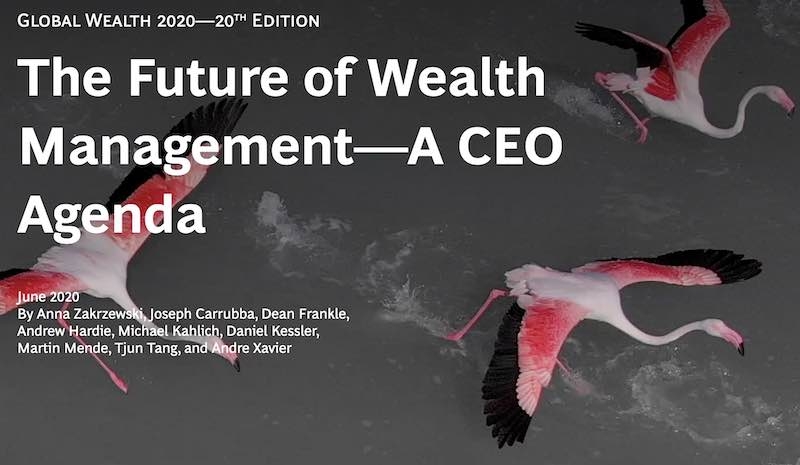One of the authors of a new global wealth management report believes that the Covid-19 outbreak could have a “profound” impact on the UK wealth management sector which has flourished in recent years.
The report by the respected Boston Consulting Group warns that wealth managers have entered the Covid crisis in a “weaker position” than the 2008 financial crash and are now under severe margin pressure, a challenge which calls for “immediate innovation.”
Despite the UK wealth sector outperforming the rest of Western Europe over the past decade and doing particularly well in 2018 and 2019, Anna Zakrzewski, BCG’s Global Leader of Wealth Management and an author of the report, said Covid-19 could hit the growth of the UK wealth management sector unless it adapts quickly.
She told Financial Planning Today: “Despite this recent growth, the Covid-19 pandemic may have a profound impact on the UK wealth management market. Wealth growth has proven its resilience in weathering crises in the past, but it’s now fundamental for UK wealth managers to adapt their business models to emerge in a stronger position.”
“As we approach the second half of 2020, the impact of Covid-19 on the wealth management industry is as yet uncertain. In an optimistic scenario, Covid-19 may offer wealth management providers a useful stress test. But it’s highly likely that it may present global markets with one of their greatest challenges to date, and will almost certainly cause wealth to contract in the short-term. It’s safe to say recovery from Covid-19 will define wealth growth in the years ahead.”
She added: “Wealth managers must rise to the challenge and ensure that they meet the increased demands of clients. This will include taking active steps on digitalization to meet the desire for more personalised services, as well as to make the most of ESG opportunities. They must also adapt to new client demographics and priorities as growth markets outpace mature markets and economic growth places more wealth in more diverse hands.”
According to the report ‘The Future of Wealth Management - A CEO Agenda’ Boston Consulting forecasts three possible global scenarios for a recovery from Covid-19:
• Quick Rebound. GDP falls steeply but growth rebounds relatively quickly. Wealth managers would likely endure a short-term profitability hit, but the pandemic would not have a lasting impact.
• Slow Recovery. Economic shocks persist—and although growth resumes in 2020, the bottom is deeper and the recovery flatter. Wealth managers would see their revenue margins contract, with sub-scale players and those with higher cost-income ratios experiencing the most acute impacts. Consolidation would likely increase.
• Lasting Damage. Economic impacts are severe enough to cause long-term disruptions in labour and productivity. Wealth managers would see their revenue margins and volumes deteriorate at an accelerated rate, with subscale players and those with high cost-income ratios feeling the worst effects. M&A activity would intensify and wealth managers would have to serve their clients in “fundamentally different ways” in order to lower their cost basis.
The report found that the UK wealth management sector had prospered hugely in the past 10 years and by the end of 2019 represented 20% of all personal wealth in Western Europe, up 2% on 1999.
Growth in wealth management in the UK also accelerated 2018 and 2019 with personal wealth up by 11% in this period, 2% more than the global average.
The report found that personal financial wealth nearly tripled around the world in the past 20 years, and Asia (excluding Japan) is set to overtake Western Europe as the world’s second wealthiest region by 2022.
The share of global wealth held in emerging markets is likely to have increased from 9.3% in 1999, to 25.3% in 2019 and women are increasing their wealth faster than men, accumulating up to £75bn globally by 2023, the report said.
The report also predicted that wealth managers will need to adapt to serve more diverse, younger, and more socially aware customers.

